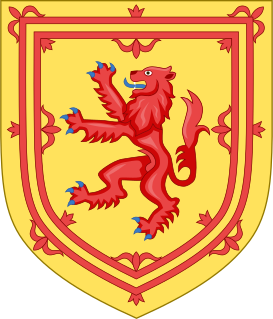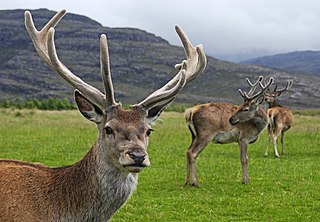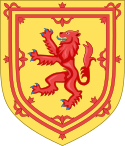In the United Kingdom, non-departmental public body (NDPB) is a classification applied by the Cabinet Office, Treasury, the Scottish Government and the Northern Ireland Executive to public sector organisations that have a role in the process of national government but are not part of a government department. NDPBs carry out their work largely independently from ministers and are accountable to the public through the Parliament; however, ministers are responsible for the independence, effectiveness and efficiency of non-departmental public bodies in their portfolio.

Her Majesty's Home Civil Service, also known as Her Majesty's Civil Service or the Home Civil Service, is the permanent bureaucracy or secretariat of Crown employees that supports Her Majesty's Government, which is led by a cabinet of ministers chosen by the Prime Minister of the United Kingdom of Great Britain and Northern Ireland, as well as two of the three devolved administrations: the Scottish Government and the Welsh Government, but not the Northern Ireland Executive.

The Scottish Government is the devolved government of Scotland. It was formed in 1999 as the Scottish Executive following the 1997 referendum on Scottish devolution.

The Government of the United Kingdom is divided up into departments. These, according to the government, are responsible for putting government policy into practice. There are currently 23 ministerial departments, 20 non-ministerial departments and 413 agencies and other public bodies.

The Department for Environment, Food and Rural Affairs (Defra) is the government department responsible for environmental protection, food production and standards, agriculture, fisheries and rural communities in the United Kingdom of Great Britain and Northern Ireland. Concordats set out agreed frameworks for co operation, between it and the Scottish Government, Welsh Government and Northern Ireland Executive, which have devolved responsibilities for these matters in their respective nations.

The Welsh Government is the devolved government of Wales. The government consists of ministers, who attend cabinet meetings, and deputy ministers who do not, and also of a counsel general. It is led by the first minister, usually the leader of the largest party in the Senedd, who selects ministers and deputy ministers with the approval of the Senedd. The government is responsible for tabling policy in devolved areas for consideration by the Senedd and implementing policy that has been approved by it.
Ministry or department are designations used by first-level executive bodies in the machinery of governments that manage a specific sector of public administration.

Public bodies of the Scottish Government are organisations that are funded by the Scottish Government. They form a tightly meshed network of executive and advisory non-departmental public bodies ("quangoes"); tribunals; and nationalised industries. Such public bodies are distinct from executive agencies of the Scottish Government, as unlike them they are not considered to be part of the Government and staff of public bodies are not civil servants, although executive agencies are listed in the Scottish Government's directory of national public bodies alongside other public bodies.

The Scottish Fisheries Protection Agency (SFPA) was an Executive Agency of the Scottish Government. On 1 April 2009, the Scottish Fisheries Protection Agency and Fisheries Research Services were merged with the Scottish Government Marine Directorate to form Marine Scotland, part of the core Scottish Government.
Non-ministerial government departments (NMGDs) are a type of department of the Government of the United Kingdom that deal with matters for which direct political oversight has been judged unnecessary or inappropriate. They are headed by senior civil servants. Some fulfil a regulatory or inspection function, and their status is therefore intended to protect them from political interference. Some are headed by a permanent office holder, such as a Permanent Secretary or Second Permanent Secretary.

The Department of the Environment, Climate and Communications is a department of the Government of Ireland that is responsible for the telecommunications and broadcasting sectors and regulates, protects and develops the natural resources of Ireland. The head of the department is the Minister for the Environment, Climate and Communications who is assisted by two Ministers of State.
The Cabinet Secretary for Environment, Climate Change and Land Reform was a cabinet post in the Scottish Government. The Cabinet Secretary was supported by the Minister for Rural Affairs and the Natural Environment, who also reported to the Cabinet Secretary for the Rural Economy.

The work of the Scottish Government is carried out by Directorates, each headed by a Director. The Directorates are grouped into a number of Directorates-General families, each headed by a Director-General. However, the individual Directorates are the building blocks of the system. The Directorates are further broken down into "Divisions" and then by teams. Divisions usually consist of 25-50 people. There is no direct correspondence between the political responsibilities of the Ministers in the Scottish Government and the Directorates, although in some cases there is considerable overlap. The Directorates are also responsible for a number of government agencies and non-departmental public bodies. Some government work is also carried out by Executive Agencies such as Transport Scotland, who sit outside the Directorates structure, but are also staffed by civil servants

An executive agency is a part of a government department that is treated as managerially and budgetarily separate, to carry out some part of the executive functions of the United Kingdom government, Scottish Government, Welsh Government or Northern Ireland Executive. Executive agencies are "machinery of government" devices distinct both from non-ministerial government departments and non-departmental public bodies, each of which enjoy a real legal and constitutional separation from ministerial control. The model was also applied in several other countries.
The Scottish Government Rural Affairs, Environment and Services Directorates were a group of civil service Directorates in the Scottish Government until a December 2010 re-organisation.
The Office for Nuclear Regulation (ONR) is the regulator for the nuclear industry in the United Kingdom. It is an independent statutory corporation whose costs are met by charging fees to the nuclear industry. The ONR reports to the Department for Work and Pensions, although it also worked closely with the now-defunct Department of Energy and Climate Change.

The Scottish Government Education and Justice Directorates are a group of civil service Directorates in the Scottish Government created by a re-organisation.

This article gives an overview of the structure of environmental and cultural conservation in Scotland, a constituent country of the United Kingdom.








